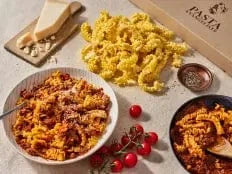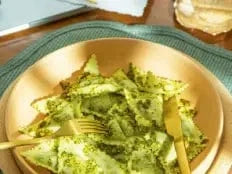How to Make the Perfect Pasta as a Student
: invalid url input)
Making pasta might seem easy, but creating the perfect bowl while avoiding committing any Italian food sins is more of a challenge. From generously salting your pasta water, to making sure you mix in the sauce before serving, we’re sharing our top cooking tips to help you craft the perfect pasta as a student.
A taste of the sea
When it comes to salting your pasta water, ‘a pinch’ is never going to be enough. You want it to taste less like the freshwater of Lake Garda and more like saline depths of the Mediterranean. Effectively salting your water means that your pasta will absorb flavour more easily, which is difficult to achieve once it is cooked. Timing is also important: ensure to add your salt only when you bring the pot to a boil and before the pasta goes in; any earlier and the water will take longer to heat.
Bend, don’t snap
Italians have a long culinary tradition, and they remain particularly adamant about not snapping pasta before it enters the pan. Yet, this isn’t simply a matter of withstanding cultural convention. Shortening your spaghetti or whatever other long pasta shape you might be preparing will only make it more difficult to eat. Long pasta should be kept as exactly that...long. When scooping it up from your plate, the pasta should have enough length to wrap around itself in a way that prevents it from falling off your fork without letting go of the sauce. When cooking your pasta normally, it will very quickly bend with the heat of the water, eliminating the need for unnecessary breakage, and a subsequently messy eating experience. Once the pasta is in the water, it is important to keep stirring as this prevents it from sticking together, or to the pot itself.
Do a bite test
If there existed an international book of Italian food rules, it’s almost certain that cooking pasta until al dente would be on page one. Literally meaning ‘to the tooth’, al dente means that pasta should be tender but still firm when bitten into. Overcooking this precious carbohydrate is akin to a cardinal sin for Italians; this is because al dente pasta will allow the sauce to stick to it more efficiently, whereas soft pasta will be mushy and absorb all of the sauce (you may as well be eating risotto). Al dente pasta also has a lower glycemic index (GI) which means that the body digests its carbohydrates at a slower rate. Digestion becomes more difficult when it is overcooked, so always aim for al dente, for the sake of your stomach at the very least.
Your colander is not a washing line
By all means, drain your pasta once it is cooked, but don’t let it sit for an age in the sink to ‘dry off’. As it cools, the starches will begin to solidify and the pasta will stick together.
Go stir crazy
Always have your sauce on hand and ready to go in a large saucepan before you add your pasta to the boiling water. Cooking your pasta should be the last step of your culinary routine. Add the noodles to the big pan immediately after draining and mix well to ensure that the pasta is well coated.
Waste not, want not
Save your pasta water! The starch in the reserved water when added to your sauce will help it bind to the pasta. It will also mean that your dish is less likely to dry out over the course of dinner.







